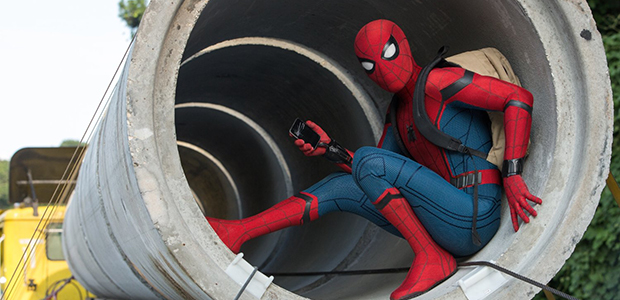
Five years later and we’re back to that familiar phase – another chapter in the Spiderman reboot saga. This time it’s different however. Neither an origin film nor a rehash, Homecoming attempts to create an altered and fresh existence for the character based on foundations that most viewers are already acquainted with, largely succeeding at what it sets out to do.
Peter Parker’s fictional life story needs no introduction and this new film shares this sentiment. Eschewing the need for traditional superhero prefacing, Homecoming picks up right where we last saw Spiderman, after the classic Battle Royale in Civil War, with Peter anxious to be asked to go on another Avengers mission. But the tribulations of teenage life bear heavy. Desperate for acceptance at his high school and balancing his superpowers while yearning to do some good in his neighbourhood, he inadvertently stumbles upon a new breed of criminals who salvage alien technology left over from the first Avengers film for petty crime.
Watching Peter trying to find firm footing as an aspirational hero while being a school kid is where the film finds itself succeeding in comparison to the last abortive revival. Possessing a distinctly unique, John Hughes coming of age vibe to it, the arrangement is more Spiderboy than Spiderman with a lot of time devoted to Peter’s nerdy, unsure school shenanigans. The film flirts with the idea that Peter feels he may find the acceptance he craves if he allows his alter ego to step into the limelight and takeover but this setup starts to strain for a few reasons.
Firstly because of the sheer number of characters that are introduced, especially those from his class. Some are obviously required to build the requisite dilemma and conflicts (school love interest, personal adversary) but others, like Michelle, an oddball classmate, add absolutely nothing to an already overcrowded narrative, detracting from the focus on Peter or even his Aunt May. This leads to the second shortcoming – the YA connection. If you think about it, even as comics, the Spiderman stories were aimed at this demographic well before marketeers knew how to exploit this niche. Though this gives Homecoming its youthful exuberance and preppy sense of fun, its hard not to recognise the shrewdly calculated precision of it all which stops it short of taking any real risks.
This doesn’t undermine the film overall achievement even if fanboy/internet speculation and associated early hyperbole has largely focused on trying to determine how good Tom Holland is as Spiderman (very good and uniquely so). The characters brand of talkative humour, even in the thick of peril (remember the scene-stealing in Captain America Civil War?) seems fresh and effervescent. Sam Raimi never even attempted this and when Mark Webb did, it mostly backfired. Michael Keaton as the antagonistic Adrian Toomes is a villain driven by motivations that are human, almost reasonable, even if his methods aren’t. As the Vulture, his is probably the best onscreen Spiderman villain after the seminal Doc Ock and his confrontations with the webslinger results in action sequences that clearly distinguish themselves from other large-scale murky genre attempts. All of this reinforces what the title foretells; Marvel, working for the first time as a Studio on its flagship superhero, has now taken control. Their most recognisable commodity has finally come back to its rightful home.
Rating: 



